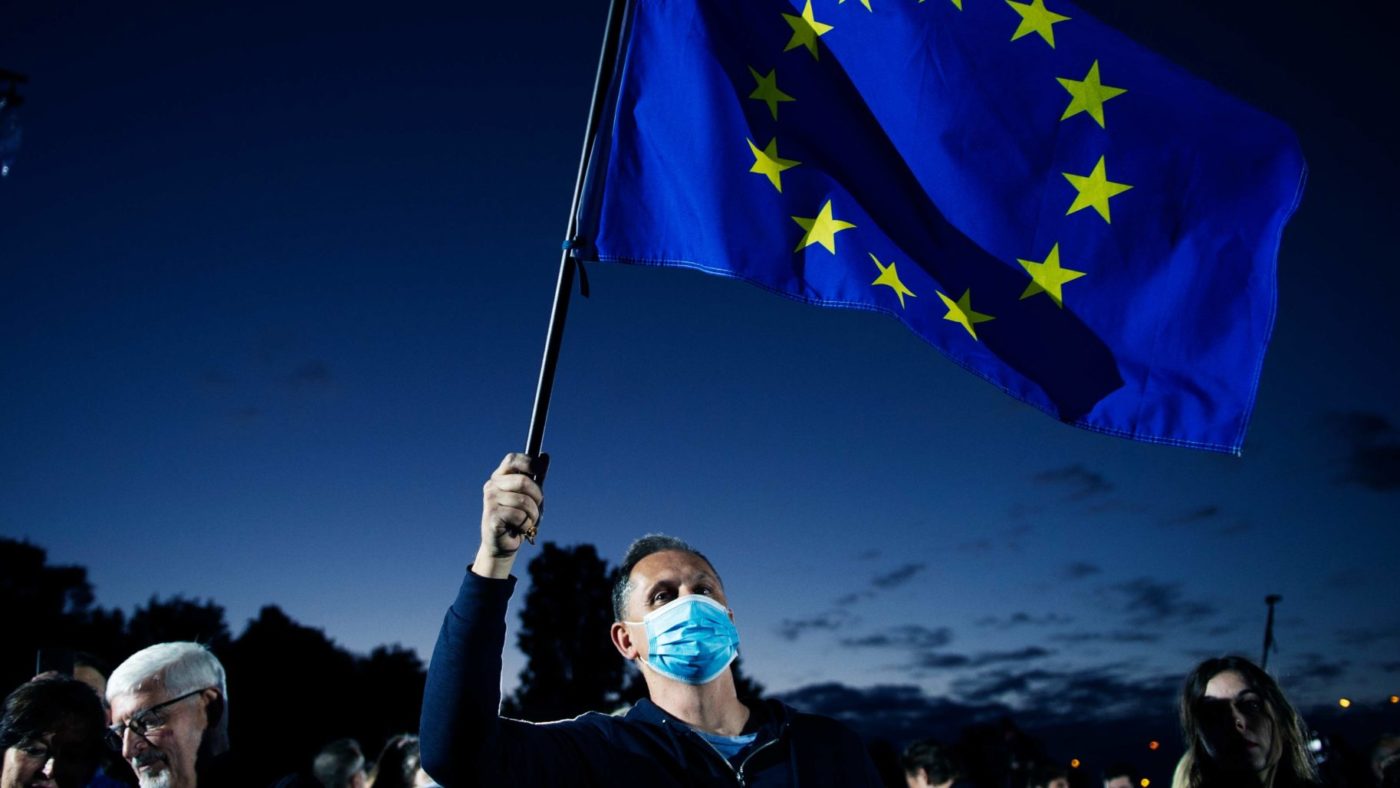After days and nights of negotiations, the hard-won agreement on the EU recovery fund, was hailed as a chance to make the EU more relevant to voters. The mood of sleep-deprived euphoria led some to describe this impressive achievement for diplomacy as a “Hamilton” moment, a staging post on the road to a federal Europe in which sovereignty would flow to Brussels. Just as Treasury Secretary Alexander Hamilton succeeded in making individual states’ debt the responsibility of the Federal Government, the argument went, so European leaders, through issuing EU debt for the first time, have taken a giant leap towards creating a United States of Europe.
Yet amid the pride in a deal that so nearly eluded them, leaders should not misunderstand the portent of this ‘European moment’. European Council on Foreign Relations polling, undertaken across nine European countries which make up two-thirds of the bloc’s population, shows that Europe’s population are giving their leaders a paradoxical message.
Across Europe, most people think the EU has failed to live up to its responsibilities during the pandemic. There is no appetite for a United States of Europe or further institution-building in Brussels. However, covid-19 has taught them how alone Europeans are in the world. Faced with an existential threat, large majorities across the continent realised that no-one was there to help them – not the EU, international institutions, or Europe’s allies.
Yet at the same time, with unsentimental logic, most citizens across the EU country now understand that only through cooperation within the EU can they avoid getting swept away by pandemics, bullying countries, climate change. Without enthusiasm, they have concluded that in a world of an aggressive China and Trump’s America, there is no alternative to European power.
One casualty of covid has been Europeans’ faith in the US. Populations in every country we polled agreed that their view of the US had become increasingly negative during the crisis – and just 2% thought that the US had been a “helpful ally” in the fight against covid. This is not simply due to a visceral dislike of Trump. It stems from Europeans looking on in disbelief at the US’s response to the pandemic, which has caused many to see the US as too weak to be entrusted with defending the Western world.
Meanwhile, Europeans have become equally sceptical about their second biggest economic partner, China, and its attempts to deflect responsibility and sow division within the EU. In every European country apart from Bulgaria, perceptions of China had become more negative as a result of crisis – even in countries such as Portugal and Spain that were sent Chinese ventilators and consignments of PPE.
When asked, Europeans are clear on what they want. An EU that strengthens controls on its external borders, brings back the manufacture of key goods, and acts decisively on climate change. In the wake of the problems that EU countries had in sourcing PPE during the early months of the pandemic, Europeans want production of medical supplies to return to Europe, even if it results in higher prices. The hope is that the trillion-dollar financial package can be used to fund high-profile projects that make Europe visibly more secure – from vaccines and stockpiles of medicine to massive solar investments or digital innovations – as well as economically viable in the era of uncertainty covid-19 has unleashed.
In a strange way, the covid crisis has scrambled the divisions in Europe between the globalists who believed in global governance and the nationalists that want nation-state solutions. The globalists can see Americans and China will not come to their aid in a time of crisis, and that we need European solutions. Nationalists can see that left alone our nation states are not powerful enough to deal with global crises. It’s a remarkable turnaround that, despite the populist surge in recent years, fewer than one in five voters think EU co-operation has gone too far.
Our polling suggests that European citizens’ feelings today are closer to those expressed by the British historian Alan Milward than they are to the thrust of federalist papers. Milward’s revisionist history, The European Rescue of the Nation State, argued that the driving force for the European project was a recovery – rather than sublimation of – national sovereignty. Although it is true that Milward’s narrative was about nations rescuing their states from their own inherent conflicts in the 1950s, the demand in 2020 for ‘more Europe’ is about rescuing the nation state from external pressures. Our data suggests that Europe’s citizens want to empower Brussels in order to rescue the nation state.
It should be a sobering paradox that this strong public appetite for European action is based on the EU’s failure – its absence during the crisis when it was needed most. Europeans are disappointed that the EU failed when it was tested. And if national and EU leaders don’t rectify this quickly and make sure that the recovery plan displays real change, they could end up creating not a Hamiltonian moment, but a Eurosceptic one.
Click here to subscribe to our daily briefing – the best pieces from CapX and across the web.
CapX depends on the generosity of its readers. If you value what we do, please consider making a donation.


